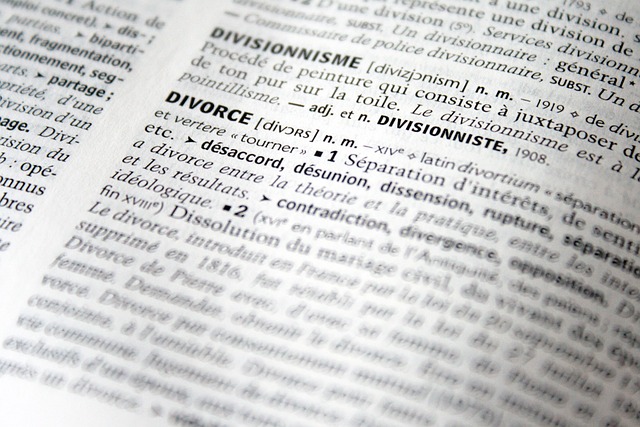Healthcare law firms must master Understanding Complex Environmental Compliance Laws to mitigate risks and ensure regulatory compliance for waste management, pollution control, and hazardous material disposal in hospitals and clinics. By leveraging experienced attorneys, implementing internal compliance programs, seeking guidance from specialists, and advocating for policy changes, healthcare providers can stay ahead of legal troubles, minimize exposure, protect reputations, and gain competitive advantages. Leading firms analyze historical litigation trends and legislative changes to develop robust risk management strategies, ensuring adherence to environmental standards and positioning themselves as industry leaders in sustainability.
In today’s highly regulated healthcare sector, navigating environmental laws is crucial for firm survival. This comprehensive guide delves into the intricate web of Understanding Complex Environmental Compliance Laws, offering a roadmap for healthcare law firms to manage risks effectively. From deciphering federal and state regulations to implementing strategic solutions, we explore practical approaches. Join us as we uncover best practices through real-world case studies and equip yourself with the knowledge needed to thrive in this dynamic legal landscape.
- Navigating Environmental Laws: A Healthcare Firm's Guide
- Complex Compliance: Challenges and Solutions for Hospitals
- Regulatory Landscape: Understanding Federal and State Rules
- Legal Strategies for Minimizing Environmental Risk
- Case Studies: Success Stories in Healthcare Law Compliance
Navigating Environmental Laws: A Healthcare Firm's Guide

Healthcare law firms face unique challenges when it comes to environmental laws, which can be complex and ever-changing. Understanding and navigating these regulations is crucial for ensuring compliance and minimizing legal risks. Hospitals, clinics, and other healthcare providers must adhere to strict standards related to waste management, pollution control, and safe disposal of hazardous materials. Failure to comply can result in significant fines, lawsuits, and damage to the organization’s reputation.
By employing experienced attorneys who specialize in environmental law, healthcare firms can gain a competitive edge. These legal experts help their clients stay ahead of regulatory changes and offer strategic guidance on managing environmental risks effectively. Across the country, philanthropic and political communities recognize the importance of these laws in protecting public health and safety, which translates into winning challenging defense verdicts for well-prepared healthcare organizations.
Complex Compliance: Challenges and Solutions for Hospitals

Hospitals face a unique challenge when it comes to navigating complex compliance issues within healthcare law. With an ever-evolving regulatory landscape, institutions must stay abreast of intricate environmental laws and regulations that impact their operations. Understanding Complex Environmental Compliance Laws is paramount for hospitals to avoid legal pitfalls and maintain their integrity.
One of the primary solutions lies in building a robust internal compliance program. This involves dedicating resources to train staff on relevant laws, establish clear protocols, and implement effective monitoring systems. By fostering a culture of compliance, hospitals can ensure adherence to regulations covering waste management, pollution prevention, and resource conservation. Moreover, leveraging the expertise of white-collar defense specialists who have an unprecedented track record in navigating regulatory complexities can offer strategic guidance. Engaging with philanthropic and political communities to advocate for sensible policy changes also plays a role in addressing these challenges from a systemic perspective.
Regulatory Landscape: Understanding Federal and State Rules

Healthcare law firms operate within a complex regulatory landscape that encompasses both federal and state rules. Understanding these laws is crucial for ensuring compliance across the country. The regulatory environment is vast, encompassing various aspects such as patient privacy, data security, clinical trials, and insurance coverage. Healthcare providers must navigate these regulations meticulously to avoid legal pitfalls.
The intricate nature of healthcare legislation demands a deep understanding of environmental compliance laws. This includes all stages of the investigative and enforcement process, from initial inquiries to settlements or trials. Moreover, firms specializing in white-collar defense play a significant role in guiding clients through these complexities, ensuring they remain compliant and mitigate potential risks.
Legal Strategies for Minimizing Environmental Risk

In today’s complex regulatory landscape, healthcare law firms must employ sophisticated legal strategies to navigate the intricate web of environmental compliance laws. Understanding these regulations is paramount for minimizing risk and ensuring operations adhere to strict standards. This involves a deep dive into the unprecedented track record of environmental litigation, allowing firms to anticipate potential pitfalls and develop robust risk management plans. By analyzing past cases, especially those involving jury trials, legal teams can identify emerging trends and craft effective defenses tailored to corporate and individual clients alike.
Moreover, staying ahead of regulatory changes is crucial. Healthcare law experts must keep pace with legislative shifts, executive orders, and agency interpretations that shape environmental policies. This proactive approach enables them to guide clients through the ever-evolving landscape, mitigating legal exposure and fostering long-term sustainability in an industry where environmental compliance is not just a legal necessity but a competitive advantage.
Case Studies: Success Stories in Healthcare Law Compliance

In the dynamic landscape of healthcare law, understanding complex environmental compliance laws is paramount. Successful navigation of these regulations often hinges on robust case studies that illustrate winning challenging defense verdicts. Leading healthcare law firms have built an unprecedented track record by mastering this intricate dance, guiding clients through all stages of the investigative and enforcement process. By analyzing real-world scenarios, these legal experts uncover strategies that not only ensure compliance but also foster a culture of adherence to the ever-evolving regulatory framework.
Through meticulous case studies, firms demonstrate their ability to decipher intricate environmental laws, translating them into actionable plans. This approach has yielded notable success stories, showcasing their capability to protect clients from hefty fines and reputational damage. By drawing on these winning challenging defense verdicts, healthcare organizations gain invaluable insights, empowering them to proactively manage environmental compliance risks and navigate the complex regulatory environment with confidence.
In navigating the intricate web of healthcare regulations, particularly complex environmental compliance laws, understanding federal and state rules is paramount. By adopting proactive legal strategies and learning from successful case studies, healthcare firms can minimize environmental risks effectively. Embracing these insights empowers organizations to not only comply with legislation but also foster a culture of sustainable practices, ultimately contributing to a healthier planet and improved patient care.






